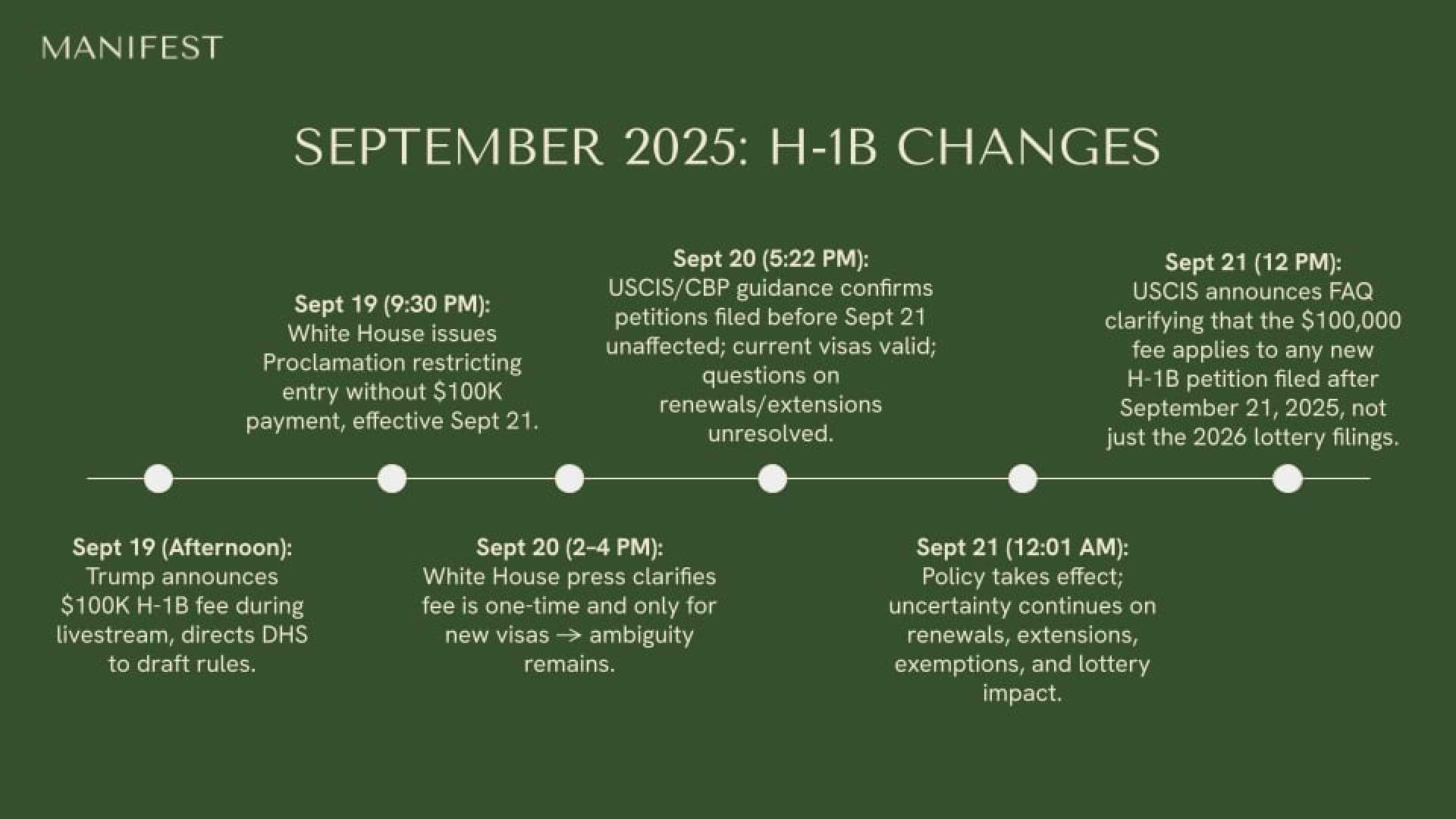News
USCIS Clarifies $100,000 H-1B Visa Fee Rules and Exceptions

WASHINGTON, D.C. — The U.S. Citizenship and Immigration Services (USCIS) recently released guidance regarding the new $100,000 fee imposed on H-1B visa applications, which has raised numerous questions among employers. This fee was introduced as part of a presidential proclamation issued on September 19, 2025.
According to the USCIS, the fee applies to new H-1B petitions submitted after 12:01 a.m. Eastern Daylight Time on September 21, 2025. It is particularly relevant for those applying from outside the United States and who do not have a valid H-1B visa. However, cases involving a “change of status” for individuals already in the U.S. are exempt from this fee, said Dan Berger, an immigration attorney.
The proclamation aims to address concerns regarding the recruitment of foreign workers, as international students make up a significant portion of the workforce in critical fields. The annual H-1B cap is set at 65,000 visas, with an additional 20,000 visas available for those with advanced degrees from U.S. institutions.
USCIS clarified that the fee is not required for applications requesting a change of status, extension of stay, or amendments for individuals already in the U.S. Additionally, if a current H-1B holder departs and reapplies, the fee also does not apply, as they would maintain their eligibility.
However, there are exceptions. The USCIS will require the fee if an application for a change of status is denied or if the individual is no longer in valid visa status. The agency has set forth criteria for applying for an exception, particularly in cases that serve national interests.
The guidance specifies that applicants must submit the fee using the designated payment portal prior to filing their petitions. This has been a source of confusion among many employers.
Critics of the fee argue that it places a heavy financial burden on small and medium-sized businesses that rely on foreign talent. The U.S. Chamber of Commerce has announced plans to contest the fee in court, asserting that it may not hold legal validity.
As employers navigate these regulations, USCIS has acknowledged that while it aims to clarify the process, many uncertainties and challenges remain in implementing the new fee structure.












